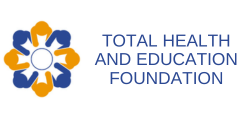The CAN DO Program – Children’s Autism and Neuro-Developmental Optimization Program
A lot has changed in twenty years. Back then, assessments could be undertaken for children who were experiencing problems with attention and learning or problems and/or with social interactions and sensory senstivities. Whilst various behaviour management strategies could be suggested for parents and teachers to implement, there was no treatment for the underlying issues. Yet these children can suffer enormously – they have problems with self-esteem, often being ridiculed by their peers or coming to the conclusion that they are ‘dumb’ despite having significant strengths.
Steven was one of those children describe themselves that way. At 14 he had low self-esteem was underachieving at school, and becoming increasingly negative about his future prospects. It is a sad fact that many children leave school feeling that they don't fit in or are unintelligent, hopeless at learning, no good at anything, or losers. In Steven’s case, his negative feelings led to school avoidance, staying home and spending time watching TV and playing on his computer. Steven had problems concentrating in class, had difficulty making friends and was uncoordinated at sport and unwilling to participate in it. His co-ordination problems were such that at 14, he still could not tie his shoelaces. When tested, Steven’s attention and decision making were indeed below the level expected for his age and these children will often end up with a diagnosis of ADHD. However, the major discrepancy was with his language abilities. He did poorly on a task requiring auditory attention, but well on one for visual attention. A child who has difficulties of this sort may have problems processing and comprehending verbal messages that are complex. He therefore appeared to be impulsive and inattentive.
The CAN DO Program is a break-through suite of interventions that treat the underlying problems that children like Stephen face. It addresses the stages of neuroplastic healing outlined by Dr Norman Doige in his book The Brain’s Way of Healing. The Program starts with a thorough psychological assessment which aims to pinpoint the nature of the child's difficulties. By then providing evidence-based herbal and nutritional support to the nervous system and brain the subsequent treatments can be more effective. These include individualized auditory training where indicated and social skills training which work together to improve the underlying problems enabling children to focus, to process information and to learn, and to enoy social situations with more freedom and confidence.

